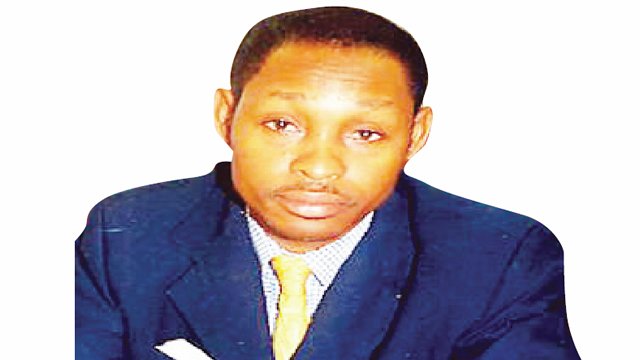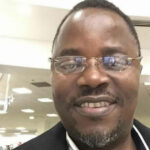
One of the major hallmarks of Nigeria is the diversity of ethnic groups, nationalities, religions, tongues, etc. Nigeria as a nation has been defined as a work-in-progress, for the unification of various component groups and mobilising them to work in concert for the common good. This is all about the task of nation building, an attempt to remove attention from the fault lines and cleavages and focus more on the things that hold us together. Of late, the fault lines have become so visible and the persons and authorities charged by law and policy with ensuring the smoothening of these fault lines seem to be extending and widening them. This is the background to the Muslim-Muslim presidential and vice-presidential ticket of the ruling party – the All Progressives Congress. This discourse seeks to highlight the factual and policy backgrounds that make such a decision wrong, insensitive and inappropriate at this stage of our history.
Nigeria’s first national anthem talked about tongues and tribes differing but recognised the need for us to stand in brotherhood and sisterhood. It is about unity in diversity, the recognition of our differences while taking steps to ensure that we work in tandem for national unity, economic growth, development and the achievement of our human potential. It is in recognition of the need for unity, national integration and nation building that section 14 (3) the 1999 Constitution provides that the composition of the Government of the Federation or any of its agencies and the conduct of its affairs shall be carried out in such a manner as to reflect the federal character of Nigeria and the need to promote national unity, and also to command national loyalty; thereby ensuring that there shall be no predominance of persons from a few states or from a few ethnic or other sectional groups in that government or in any of its agencies. Similar provisions are made for state and local government politics and governance. Furthermore in section 15 (3) (d), it is provided that the state shall take steps to promote or encourage the formation of associations that cut across ethnic, linguistic, religious and or other sectional barriers. This is the foundation of the federal character principle which even in the educational sector is claimed as an affirmative policy principle for purportedly educationally backward states.
This provision on the need to prevent the predominance of sectional groups includes the prohibition of the dominance of religious groups. Political parties, being the foundation groups for politics and governance, are clearly part of the associations that should cut across religious or other sectional barriers. Thus, on the basis of the provisions of the Fundamental Objectives and Directive Principles of State Policy found in Chapter 2 of the 1999 Constitution, the Muslim-Muslim ticket cannot stand and this discourse posits that it is unconstitutional and ultra vires for a political party or candidate of apolitical party to make such a choice. The argument that a candidate is at liberty to choose a running mate is not standing on a sure footing because his choice of a candidate is circumscribed by law. Such a candidate must be one authorised and permitted to be a candidate by the constitution and other laws of the land.
Beyond the legal and policy arguments, we are faced with an APC-led Federal Government that is reputed to have become divisive, nepotistic and promoted sectionalism instead of unifying the country. The Buhari regime is on record as putting a knife on the things that held us together to the extent that the President could afford on national television to call a section of the country a “dot” and had earlier asserted that it would be unfair to expect him to treat all parts of the federation equally because the “dots” did not give him more than five per cent of the vote during election. Presidential appointments have been so lopsided especially in the security sector and many Nigerians are firmly of the view that the government’s failure to tackle insecurity rests on the lopsided nature of the persons and authorities who take security decisions.
For the same political party that has been accused of being divisive to now move to the “next level” in the “top to bottom” agenda of dividing Nigerians even before the elections shows that the misadventure is so deep that it should not be allowed. If a candidate can afford to call the bluff of may be, more than half of the population, offend their sensibilities and doesn’t offer any apology, but rather doubles down and pretends that he is right; if such a candidate by any mistake assumes the powers of the presidency, one can be sure that his policies and programmes towards this half will display contempt, disregard and malice. Knowing the inclinations of the candidate, the warning for the APC candidate not to adopt a Muslim-Muslim ticket started as soon as he emerged a candidate, but he refused to take heed. Even the incumbent President, when he was contesting the presidency in 2015 did not dare to nominate a Muslim as his Vice President, and that was the reason the present presidential candidate of the APC could not become the vice-presidential candidate to Buhari.
So, what has changed between 2015 and today? This discourse posits that Nigeria is more polarised, divided and more in disunity today than in 2015. If a Muslim-Muslim or Christian-Christian ticket could not be contemplated in 2015, it is a resounding ‘no’ today because things have fallen apart and our centre is no longer holding. The reference of the candidate to the Moshood Abiola June 12 1993 period holds no water. The Nigeria of 2022 is a far more changed landscape compared to 1993 which could be described as the age of innocence. Insisting that the same religion ticket is based on competence is an insult to the sensibilities of the other half because there is no evidence to show that competence is the hallmark of one religion over others. If one is even to base the competence on acquisition of western education, the neglected half may have more competent persons.
There is a further argument that Nigerians should not be worried since there is a multiplicity of political parties. That argument is unfounded and holds no reasonable content. This is about a ruling party that should lead by following the rule of law and its due process and showing examples. We live in a country where vote buying and election rigging are still rampant, and the ruling party has been part of the dubious elections. Nigeria cannot afford to take that chance of allowing a political party to show its disdain and inclination to run afoul of decency while holding the levers that can manipulate the elections.
In the final analysis, Nigerians should clearly show that what is wrong is wrong. No one has the right to divide the country with an inordinate ambition to leadership. Nigeria is in dire need of unity and nation builders and not dividers.





